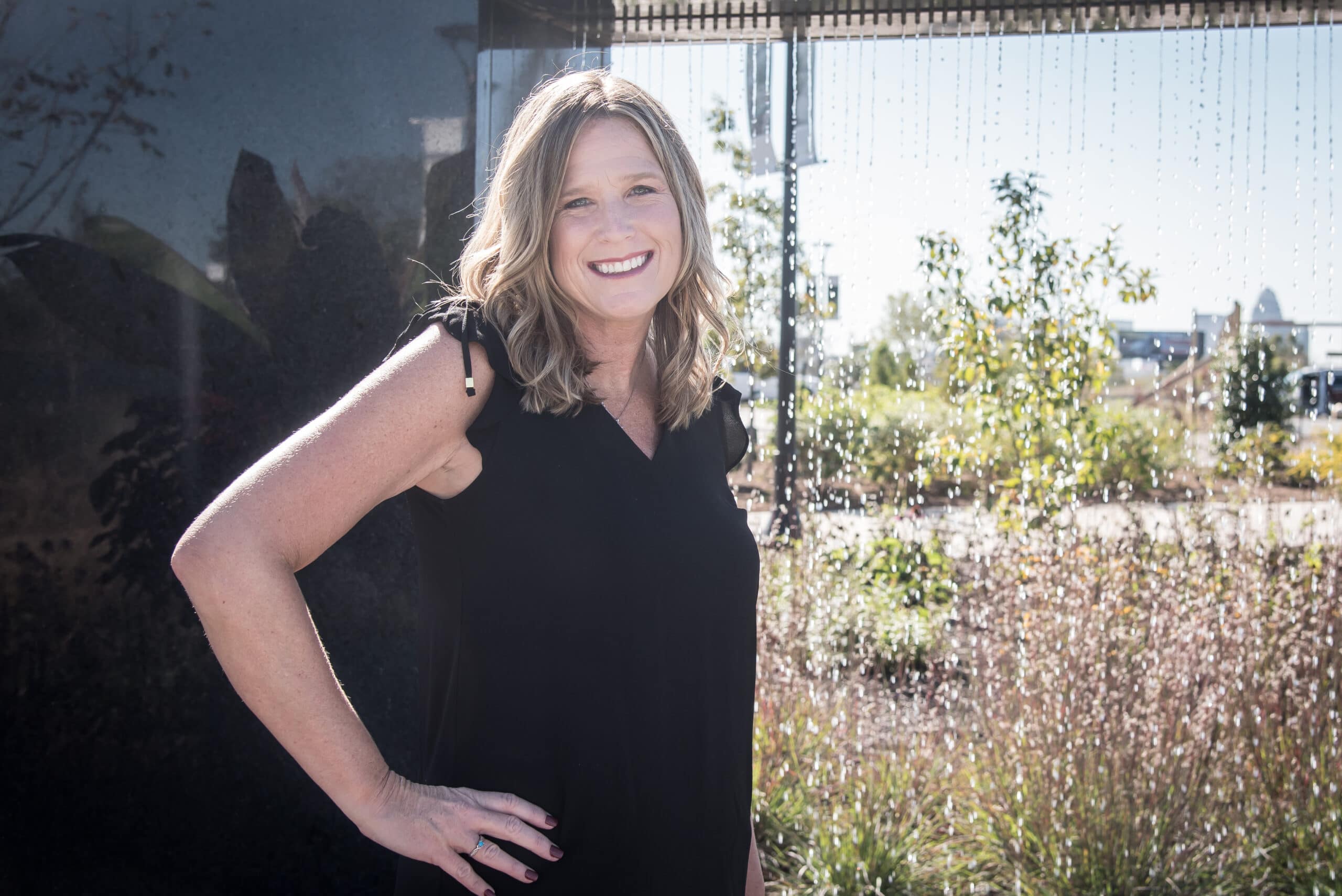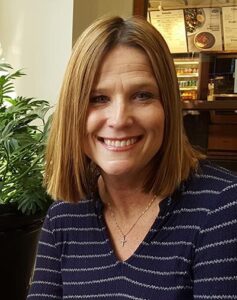
Three years ago, Lana Boes of Charlestown, Ind., was at the end of her rope. She had been fighting colon cancer for nearly two years with multiple surgeries, two different chemotherapies, regular blood transfusions and more. But the cancer had returned and the chemotherapy no longer was working.
“I was down to 100 pounds. I really couldn’t eat. I had to take medicine to help me with my appetite. I just couldn’t do it anymore,” Boes said.
First diagnosed at age 43, Boes’s first surgery went well, but the cancer returned. After her second surgery, Boes started chemotherapy. Genetic testing revealed she had Lynch Syndrome, a genetic mutation that carries a higher-than-normal risk for cancer. When the first chemotherapy drug failed her, Boes started another, harsher chemo drug. That drug, too, eventually failed.
At that point, she was offered the chance to participate in a clinical trial for pembrolizumab, better known as Keytruda®, an immunotherapy drug previously successful in treating other types of cancer, but not yet FDA approved for the type of cancer Boes had.
“Lana started to suffer not only from the side effects of her cancer progressing, but also the side effects of treatment. It was clear that we needed something new and different,” said Rebecca Redman, M.D., Boes’s oncologist and deputy director of clinical research at the UofL Brown Cancer Center. “This clinical trial became available right around that time. It was based on some early evidence that suggested immunotherapy would be a really great option for Lana’s type of cancer.”
Keytruda is a type of immunotherapy that engages a patient’s own immune system to fight cancer. Cancer cells use a protein called PD-1 to hide from the immune system. Keytruda blocks the PD-1 pathway, Redman said, allowing the patient’s immune system to recognize the cancer as something that doesn’t belong and destroy it.
With support from her husband, Tim, Boes decided to enter the trial. She started receiving Keytruda in June 2016, and her condition improved almost immediately.
“With Keytruda, I got my life back. With chemo I went home and went to bed and you didn’t see me for the weekend,” Boes said. “With Keytruda, I didn’t go home and go to bed. I started getting an appetite and some strength back. I was able to enjoy doing things outside of my house again with family and friends.”
She remained on the immunotherapy drug for two years, completing the trial in June 2018. Regular checkups show that as of March 2019, Boes’s cancer is not detectable in scans or exams, and her cancer tumor marker numbers have remained within normal range. Redman considers her cancer in remission.
Boes says she has a fresh outlook on life, and can plan for her future.
“I used to refuse to book anything in advance. Everything we did was always last minute because I didn’t know if I was going to get to go,” Boes said. “I didn’t buy things that were for the future. I couldn’t talk about the future.”
Now she has plans to celebrate a special milestone in 2020.
“I never used to care about birthdays, but every birthday is a big deal to me now,” Boes said. “I turn 50 next November and I told my husband, ‘I never thought I was going to see 50, so I want to go to Italy.’ It’s huge for me in so many ways.”
While she is grateful for having the chance to participate in the trial with Keytruda, Boes also is grateful to Redman and to the staff at the Brown Cancer Center.
“Just seeing Dr. Redman made me feel better. She saved my life. She treats me with so much care. She sits down and she listens to me,” Boes said. “Every person at Brown is just so kind and they genuinely care. That makes such a huge difference when you are not feeling good.”
Redman, also associate professor at the UofL School of Medicine , said she has seen good results with immunotherapy in other patients with cancer like Boes’s. Unlike chemotherapy, which requires continued treatment, in some cases immunotherapy may allow a patient’s body to continue to control the cancer for an extended period of time.
“The most exciting thing about immunotherapy is that not only are we seeing remarkable tumor responses, but those responses seem to last a long time,” Redman said. “For some patients, it appears that once you train the immune system to attack the cancer, it may continue to do so for some time, possibly even after the immunotherapy has been stopped.”
Keytruda is the first drug approved by the FDA for the treatment of cancers based on a specific change in the DNA of the tumor, microsatellite instability (MSI), instead of where the cancer is in the body. MSI can be present in colon cancer but also in other organ cancers, and Keytruda is FDA-approved to treat cancers with MSI anywhere in the body.
Redman said that through her participation in the trial, Boes helped make it possible for other patients to have access to Keytruda for their MSI cancer. FDA approval typically means an insurance company will cover the treatment and makes the drug available to all patients.
“By participating in this trial, she has allowed this drug to move toward FDA approval, so immunotherapy now is a standard treatment for patients with microsatellite unstable cancers,” Redman said. “Thanks to patients like Lana who participate in clinical trials and take that extra step a little bit into the unknown, thousands of people will benefit and will have their lives turned around.”
Boes is most grateful to have the chance to live without cancer.
“I’m living my life normally,” Boes said. “I’m not cancer. Nobody treats me as cancer. I’m just me again and that is the best feeling ever.”
Participate in clinical trials
Volunteers always are needed to assist researchers solve health problems. Even if you do not have a health concern, you can be part of clinical trial research at UofL and at research institutions around the nation by registering at UofL.me/researchmatch . This nationwide database allows anyone to take part in important health research. Learn more by registering today.
To learn more about cancer clinical trials, visit the UofL Brown Cancer Center’s clinical trials page.









